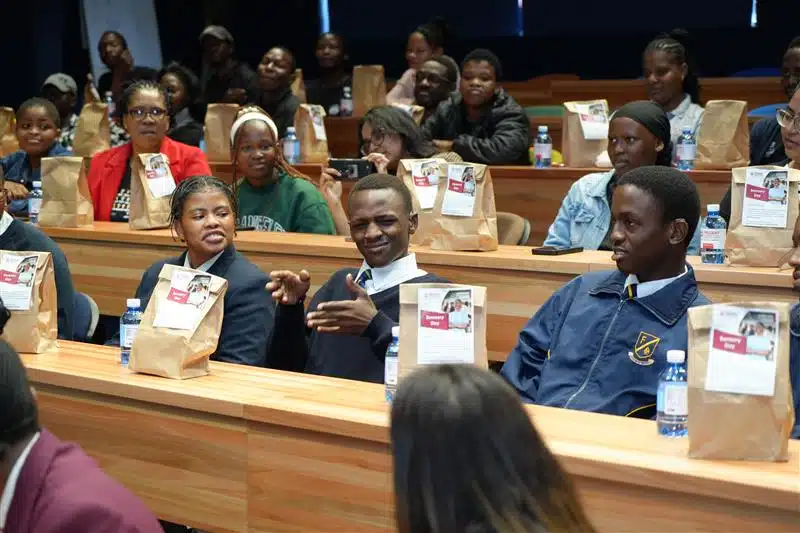Regent Business School’s School of Healthcare Management, in collaboration with the KwaZulu-Natal Blind and Deaf Society, has launched a landmark programme aimed at transforming how education and engagement are experienced by the Deaf and Hard of Hearing (DHH) community. Hosted at Regent Business School’s immersive learning centre in Durban, this initiative is the first in a series designed to prioritise accessibility, creativity and dignity in education.
Traditional Exhibition?
Far from a traditional exhibition, the event offers a sensory-rich space built to communicate through sight and touch alone. With two visually striking installations and an interactive clay-modelling activity, the experience is designed not just to accommodate but to fully engage DHH participants. It is a bold rethinking of how learning can happen when access is considered from the start.
The first installation, Nature and the Cosmos, invited visitors into a cinematic experience of the natural world and deep space, using dynamic imagery to provoke awe and connection without relying on sound. The second, Abstract Visual Rhythm, reimagined sound itself. It translated rhythm into moving visuals that pulse and shift in sync, creating a powerful sensory impact through visual motion.
“Accessibility cannot be an afterthought,” said Dr Rowen Govender, Regent Business School’s Academic Head – School of Healthcare Management. “We designed this centre to challenge what immersive learning means. This event reflects our belief that education should serve everyone, not just in theory but in practice. It is part of a larger commitment to rethink how we engage with communities and how we define inclusion.”
Ilead Lab
Following the visual segments, participants transitioned into the iLead Lab, a space dedicated to tactile learning. Here, clay modelling provided an expressive outlet through touch. It offered time for personal reflection, artistic interpretation and peer interaction. This brought to life learning that invited presence, awareness and a sense of shared experience.
For many in the DHH community, the event marked a first: a cultural and educational environment not only accessible but actively built with their needs at its core.
“I’ve been to events that were technically accessible, but this was different,” said Yegeshne Naidu, a spokesperson for the KwaZulu-Natal Blind and Deaf Society. “This wasn’t about adapting something for us. It was made for us, with the DHH community. The experience spoke through visuals and textures in a way that was intuitive and moving. It made members of the DHH community feel seen and heard in a space that usually doesn’t.”
The partnership with the KwaZulu-Natal Blind and Deaf Society is central to the programme’s integrity. Their insight informed the design from concept through execution, ensuring that the event was relevant, respectful and resonant.
The immersive learning centre itself is a recent addition to the Regent Business School campus. Equipped with advanced projection systems, spatial design tools and interactive materials, it offers a flexible space where content can be reimagined to meet different learning styles and accessibility needs.
Building a momentum
This initiative is not a one-off. Regent Business School plans to build on the momentum of this first event with a series of future programmes aimed at different communities, with inclusion, creativity and accessibility as core design principles.
“We are not interested in quick wins or surface-level efforts,” Dr Govender added. “This is about reshaping what meaningful education looks like. We are here to listen, to collaborate and to create environments where everyone has a place, not just a seat.”
An Invitation
Regent Business School invites media, educators and community leaders to visit the centre and witness first-hand how access and imagination can work together to reshape what learning means.

